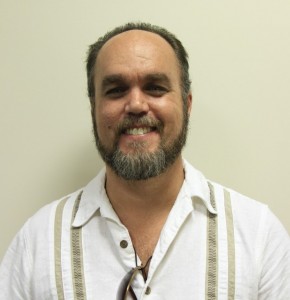 I was a reasonably well behaved child. I got in a little trouble at school and home, but nothing unusual. I even got into a few fights, but they were brief and I was usually on the losing end. These weren’t seen as much to be worried about, and kids were expected to shake hands and go on about their business. I am not suggesting that things should be that way today. In fact, I have seen that parents’ willingness to let kids fight, or even to expect them to fight, can lead to some serious problems.
I was a reasonably well behaved child. I got in a little trouble at school and home, but nothing unusual. I even got into a few fights, but they were brief and I was usually on the losing end. These weren’t seen as much to be worried about, and kids were expected to shake hands and go on about their business. I am not suggesting that things should be that way today. In fact, I have seen that parents’ willingness to let kids fight, or even to expect them to fight, can lead to some serious problems.
Still, the case of a 9-year-old girl who, nearly a year ago, was detained by police in Portland, Ore., raises some serious questions about the city’s policing policies towards kids. The case (covered by Maxine Bernstein of The Oregonian as well as Denis C. Theriault of the Portland Mercury) has received attention both domestically and internationally and interest has been renewed after the girl’s mother took her case to a police oversight committee recently.
By all accounts the girl got into a fight at a youth club. She was apparently intervening in an argument between two other girls that turned into a fight between her and one of them. Staff broke up the fight and reported that the girl had continued to strike out while being restrained. There were no obvious injuries and the girl was suspended from the club for a week and sent home. The girls apologized to one another.
The mother of the girl she had been fighting with called the police later, complaining that her daughter had a mark on her face and her head had been banged into a wall. The police took a picture and went to talk to the girl, but she wasn’t there.
Six days later things took a more serious turn. Two police officers arrived at the girl’s home and questioned her about the fight. They then placed her in handcuffs, put her in their car and drove her to the downtown police station to be fingerprinted and photographed.
"When they put handcuffs on, I thought, 'Wait a minute, this has got to be a joke’” the girl’s mother said. "The look on my daughter's face went from humiliation and fear, to a look of sheer panic.''
The reason for this decision? The girl gave “vague answers” and her version was “inconsistent” with other reports, it seems. She also appeared to the officer to be angry when they asked about what had happened. They also noticed that she was breathing fast and looking at the ground. The questioning was described by the mother as aggressive, and when the police moved to take the girl to the station they refused to let the mother accompany her. The mother took a bus to the police station, choosing to let her daughter remain at the station for over an hour rather than suffer the humiliation of arriving home in a squad car.
No charges were ever filed. The mother complained to the police, but no real action was taken. The officers hadn’t broken any rule or violated any departmental policies she was told. That’s what led her to make another complaint this time to the Citizen Review Committee, and this one garnered that support of advocates for youth and more widespread protests against the overreaction of the police force.
The upshot has been a proposal to update departmental policy and address what police administrators described as a “gap” in how such cases are handled. These changes are welcomed, and it is wonderful that they come in response to a coalition of interested advocates, citizens and parents. It hasn’t been without cost though. The girl, taunted by her classmates has been removed from a school she loved, and now, following the renewed publicity of her case she has been reportedly retraumatized.
This case is, I hope, an aberration in its extremity, but it points to the continuing criminalization of what was once seen to be normal child behavior. With the resources of communities overcommitted to policing (a phenomenon growing out of the war on drugs and zero tolerance violence policies) it’s no surprise that the police are being used to solve what were once considered to be social problems. Just as they are asked to deal with the mentally ill, the homeless and the poor, cops are tasked with dealing with 9-year-olds who are fighting. If the only tool you have is a hammer ... Well, you know the rest.
http://www.portlandmercury.com/portland/arrested-at-age-nine/Content?oid=12225659
The Portland Mercury first reported this story not the Oregonian. Thanks for correcting your attribution.
Hi Portland Resident,
I have added a line crediting the Portland Mercury, thanks for calling to our attention.
Best,
JJIE